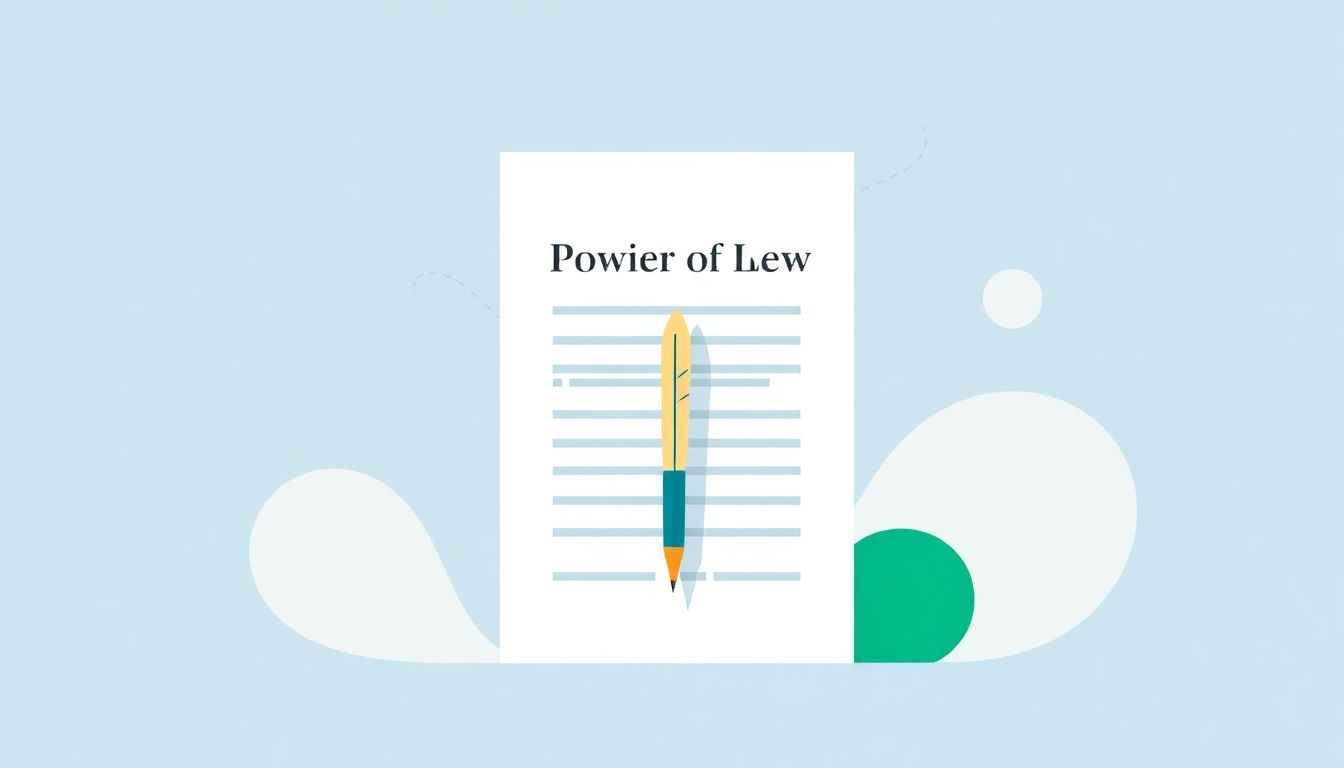Estate planning can feel overwhelming, right? You’re not alone if you’ve ever stared at a blank page, unsure where to start or what to include. It’s a big responsibility, and the thought of securing your family’s future can be daunting.
But don’t worry! If you stick around, I’ll share some fantastic ChatGPT prompts tailored to make estate planning a breeze. By the end, you’ll have a clearer understanding of how to create essential documents, ask the right questions, and even dispel some common myths.
From drafting your will to discussing your plans with family, we’ll cover everything you need to navigate the estate planning process comfortably and confidently. Let’s dive in!
Key Takeaways
- Estate planning can be simplified with targeted ChatGPT prompts.
- Key prompts include understanding wills vs. trusts and common pitfalls.
- Organizing your estate documents is essential for an efficient process.
- Utilize specific questions to clarify trusts and power of attorney roles.
- Common misconceptions can lead to confusion; ask about myths to stay informed.
- Effective estate tax planning can save heirs money; ask about strategies.
- Updating your estate plan regularly is crucial as life changes.

Essential ChatGPT Prompts for Estate Planning
When it comes to estate planning, having the right prompts can make the process smoother and more efficient.
Here are some essential prompts to get you started with estate planning guidance using ChatGPT:
- “List the key elements I need to include in my estate plan.”
- “Help me understand the differences between a will and a trust.”
- “What are the common pitfalls in estate planning?”
- “Generate a checklist for organizing my estate documents.”
- “What should I consider when choosing an executor for my will?”
Using these prompts can help you gather the information you need to navigate the complexities of estate planning.
How to Create a Basic Will Using ChatGPT
Creating a basic will is a straightforward process when using ChatGPT.
Start by gathering essential information, such as your assets, beneficiaries, and any special wishes.
Use these actionable steps to create your will:
- “Provide a template for a basic will.”
- “List the legal requirements for creating a will in [your state or country].”
- “What information do I need to include about my beneficiaries?”
- “How can I specify guardianship for my children in my will?”
After drafting your will, review it carefully with ChatGPT to ensure compliance with legal standards.
Don’t forget to save the draft in a secure place and consider consulting a legal professional for finalization.
ChatGPT Prompts for Organizing Your Estate Documents
Keeping your estate documents organized is crucial for making the estate planning process easier for you and your loved ones.
Use these prompts to help you categorize and manage your estate documents:
- “What categories should I use to organize my estate documents?”
- “Provide a checklist of essential documents for estate planning.”
- “How can I create a digital folder for my estate documents?”
- “What precautions should I take to protect my estate documents?”
By using these prompts, you can ensure everything is in order and easily accessible when needed.
Questions to Ask ChatGPT About Trusts and Estates
Understanding trusts and estates can be complex, but asking the right questions can clear up confusion.
Here are some helpful questions to ask ChatGPT:
- “What are the main differences between a living trust and a testamentary trust?”
- “Can you explain the benefits of using a trust instead of a will?”
- “What are common trust-related terms I should know?”
- “List FAQs related to trust administration.”
These questions can guide you in making informed decisions about incorporating trusts into your estate plan.

Using ChatGPT to Understand Power of Attorney
A power of attorney (POA) is a vital legal document that allows someone to act on your behalf in financial or health-related matters.
To gain clarity on this topic, consider these useful prompts:
- “Explain the different types of power of attorney and their purposes.”
- “What are the responsibilities of an agent under a durable power of attorney?”
- “List situations where I might need a power of attorney.”
- “How can I revoke a power of attorney that I no longer want?”
These prompts will help you understand how a POA works and the implications of creating one.
Tips for Writing an Estate Plan with ChatGPT’s Help
Crafting an estate plan that meets your unique needs is essential, and ChatGPT can lend a hand.
Here are actionable tips to guide your writing process:
- “Outline the key components I need to include in my estate plan.”
- “What common mistakes should I avoid when drafting my estate plan?”
- “Generate a template for an estate plan that I can personalize.”
- “How can I ensure my estate plan aligns with my family’s values and needs?”
By using these prompts, you can create a well-rounded estate plan that reflects your wishes.
Don’t forget to revisit your plan periodically, as circumstances can change.
Common Misconceptions About Estate Planning Explained by ChatGPT
Estate planning is often surrounded by myths that can lead to confusion.
To dispel some common misconceptions, ask ChatGPT the following:
- “What are the most widespread myths about wills and trusts?”
- “Can you clarify if estate planning is only for the wealthy?”
- “Explain whether having a will avoids probate.”
- “What misconceptions do people have about how often they should update their estate plan?”
These questions will shed light on the truths and myths surrounding estate planning.
Understanding these misconceptions can empower you to make informed decisions.
ChatGPT Prompts for Estate Tax Planning
Effective estate tax planning can significantly impact how your assets are distributed after your passing.
Utilize these prompts to navigate tax obligations efficiently:
- “What strategies can I use to minimize estate taxes for my heirs?”
- “Explain the tax implications of gifting assets during my lifetime.”
- “How can I structure my estate to take advantage of tax deductions?”
- “What are common tax mistakes people make in estate planning?”
These prompts can help you understand your tax responsibilities and optimize your estate for tax efficiency.
Taking the time to plan this can save your family a significant amount of money in the long run.

How to Discuss Estate Planning with Family Using ChatGPT
Having conversations about estate planning with your family can feel daunting, but it’s necessary.
Using ChatGPT, you can prepare for these discussions and ensure everyone is on the same page.
Here are prompts to facilitate open communication:
- “How can I introduce the topic of estate planning to my family?”
- “List the best practices for discussing inheritance openly.”
- “What approach should I take if family members disagree on estate matters?”
- “Generate a script for a family meeting about my estate plan.”
These prompts will help you create a comfortable environment for discussing sensitive topics.
Remember, being transparent can prevent misunderstandings down the line.
ChatGPT Prompts for Reviewing Your Estate Plan Regularly
Your estate plan is not a one-and-done task; it needs regular check-ups to remain relevant.
As life circumstances change, so too should your estate plan.
Use these prompts to review your estate plan effectively:
- “When should I review my estate plan, and what life events should trigger a review?”
- “What questions should I ask myself during an estate plan review?”
- “List the changes that could affect my current estate plan.”
- “How can I ensure my estate plan aligns with my current wishes?”
Regular reviews can help you stay proactive and ensure your assets are distributed according to your final wishes.
Don’t forget to document any changes you make.
Additional Resources for Estate Planning with ChatGPT Assistance
Creating an estate plan can feel overwhelming, but various resources are available to assist you.
ChatGPT can guide you toward valuable tools and information for estate planning.
Here are some prompts to explore additional resources:
- “What are recommended books on estate planning I should read?”
- “List online tools that can assist with estate planning.”
- “What legal websites offer free resources and templates for estate planning?”
- “Are there any webinars or workshops I can attend to learn about estate planning?”
Finally, consider consulting with professionals for personalized advice when needed. This guidance can bring you peace of mind as you plan your estate.
FAQs
A basic will should include your full name, a declaration that it’s your last will, details of assets to be distributed, names of beneficiaries, an appointed executor, and signatures with witnesses, adhering to your state’s laws.
ChatGPT can help clarify the roles involved in a power of attorney, generate drafts based on your requirements, and provide guidance on necessary legal language, ensuring your document reflects your best interests.
Discuss your wishes for asset distribution, any specific bequests, the chosen executor, and your plans for healthcare directives. Clear communication helps prevent misunderstandings and ensures everyone is informed about your estate planning.
You should review your estate plan at least every 3-5 years or after significant life changes, such as marriage, divorce, or the birth of a child. Regular updates ensure your plan remains relevant to your current situation.
